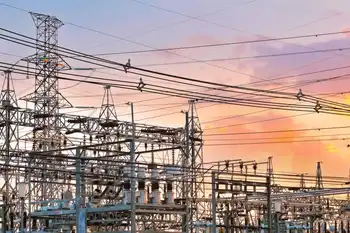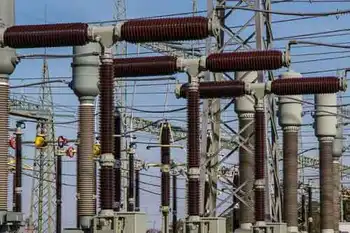Gaining power from the sun
By Needles Desert Star
CSA Z463 Electrical Maintenance -
Our customized live online or in‑person group training can be delivered to your staff at your location.

- Live Online
- 6 hours Instructor-led
- Group Training Available
On Dec. 18, 24 photo-voltaic panels on the roof of a barn in Poulson's back yard were connected to the grid-tied electrical service panel of her home on the south side of Needles.
The panels are expected to generate 60 to 65 percent of Poulson's electricity needs annually. She wants to make sure that she will be able to afford her electric bill after retirement.
“I feel that electricity is just going to keep getting worse and worse and worse,” said Poulson. “I might as well start now.”
The system Poulson installed consists of 24 panels, capable of generating 208 watts of direct current each. The panels are connected to an inverter, which turns the DC power into alternating current, that appliances in the house can use. The inverter then feeds the power into the house's electric service panel.
When the sun is shining and Poulson is not using all the juice, her electrical meter will run backwards building credit with the utility department.
The system was not cheap, but Poulson expects to make her money back before long. “I expect it'll take 15 to 25 years,” she said. “But, it could be 10 years if power keeps going up out of sight.”
Glenn Roehl, of Bare Land Developers/Sunquest Solar, installed the system.
Systems costs around $8 per watt, installed, with a minimum of approximately 2,000 watts, according to Roehl.
“This system came out to just under $40,000,” said Roehl.
The system took more than a month to plan out and two days to install. Luckily, Poulson had a large south-facing pitched roof to install the panels on. “For her particular application, this is a perfect set up,” said Roehl.
Photo-voltaic systems are tailored for individual user's needs and the space available. “What I do,” said Roehl, “is look at the energy consumption of the home owner, and then look at how much energy they want to save.”
Once he figures out how much energy the customer wants, Roehl can look at the space required to generate the energy and begin to design a system.
The panels on Poulson's house take up 400 square feet on the back roof of her barn, and are completely out of sight from the house. “I was lucky, because I have the perfect roof for it,” said Poulson.
Poulson started investigating PV systems months ago, after deciding that the cost of electricity was going to continue to increase. “I just said, it's time to do it, and do it now,” she said.
“In 10 years, I could be really sorry or I could be really happy,” said Poulson, depending on the price of energy. “I'll get my money back, even if nothing changes.”
Poulson is hoping that she will be able to recoup around $7,000 of the systems cost quickly, with a $2,000 federal tax credit and a $5,000 grant from the city.
“The city was very reasonable,” said Poulson. “They were very easy to do business with.”
The city is mandated by the state to make grants available to citizens of Needles to install PV solar systems.
Dave Brownlee, administrative assistant to the city manager of Needles, said that Poulson's system is the first of it's kind in Needles. “Kippy's is the maiden voyage for that,” he said.
According to Brownlee Kippy won't be alone for long: five more family's are ready to take advantage of the sun's energy to offset their utility bills.
“The city has budgeted $50,000 for rebates for this fiscal year,” said Brownlee.











